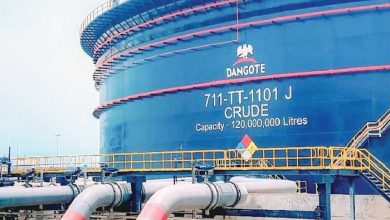Nigeria Secures $747m Loan for Lagos-Calabar Coastal Highway in Landmark Infrastructure Deal
Nigeria has secured a major $747 million loan to fund part of the Lagos-Calabar highway.
The coastal road aims to boost trade, transport, and global investor confidence in infrastructure.
In a landmark move that underscores global investor confidence in Nigeria’s infrastructure vision, the Federal Government has secured a $747 million syndicated loan to finance Phase 1 Section 1 of the Lagos-Calabar Coastal Highway, a flagship component of President Bola Tinubu’s Renewed Hope Infrastructure Development Agenda.
The Federal Ministry of Finance announced the development on Wednesday, revealing that the syndicated financing was arranged by Deutsche Bank, which served as the Global Coordinator, Initial Mandated Lead Arranger, and Bookrunner. The funds will support the construction of a 47.47-kilometre stretch from Victoria Island to Eleko Village in Lagos State.
Described by the ministry as the first syndicated road infrastructure loan of its size in Nigeria, the deal reflects renewed international confidence in the country’s fiscal direction and infrastructure pipeline. It also marks a notable shift in the country’s approach to infrastructure development, relying more on structured private-sector funding than traditional government spending.
Other institutions involved in the financing include First Abu Dhabi Bank (Agent and Intercreditor Agent), African Export-Import Bank (Afrexim), ECOWAS Bank for Investment and Development (EBID), Nexent Bank N.V., and Zenith Bank, which participated through its offices in the UK, Paris, and Nigeria.
The loan is backed by partial political and commercial risk insurance from the Islamic Corporation for the Insurance of Investment and Export Credit (ICIEC), which provides a robust risk mitigation framework that enhances the project’s attractiveness to global investors.
Hitech Construction Company, a Nigerian engineering firm, is leading the delivery of the highway under an Engineering, Procurement, Construction, and Financing (EPC+F) contract. The company confirmed that Phase 1, Section 1 of the project is already more than 70% complete.
The highway is being constructed using Continuously Reinforced Concrete Pavement (CRCP), a high-performance material chosen for its resilience and a minimum 50-year lifespan with limited maintenance requirements.
“The use of CRCP ensures unmatched durability and cost-efficiency,” said Dany Abboud, Managing Director of Hitech Construction. “We’re proud to demonstrate that Nigerian engineering, backed by international finance, can meet and exceed global standards.”
Beyond its engineering merits, the Lagos-Calabar Coastal Highway is a strategic national asset expected to transform trade, transportation, and tourism across Nigeria’s southern corridor. The road will provide a crucial logistics and connectivity route, significantly reducing travel time and transport costs while boosting regional integration.
A tolling strategy is currently under review, aimed at ensuring the project’s long-term financial sustainability through a concession-backed framework. Financing efforts for the subsequent phases of the coastal highway are already underway, with strong interest from both regional and international investors.
“This is a vote of confidence in Nigeria’s economic reform agenda,” said Minister of Works David Umahi, who called the project “a strong precedent for future public-private infrastructure partnerships.”
Wale Edun, Nigeria’s Minister of Finance and Coordinating Minister of the Economy, described the deal as a milestone transaction, reflecting the success of the government’s macroeconomic reforms and the improved investment climate.
“This deal reflects the return of international capital to support Nigeria’s development,” Edun said. “It is another testament to Mr President’s commitment to accelerate private-sector participation in national infrastructure delivery.”
Edun added that the project positions Nigeria to fully embrace Public-Private Partnership (PPP) models, noting that it signals the sophistication and maturity of the Nigerian market, as well as the government’s commitment to contract sanctity and innovative financing structures.
Khalid Khalafalla, CEO of the ICIEC, highlighted the importance of risk mitigation in attracting cross-border capital for critical infrastructure.
“Through ICIEC sovereign risk coverage, we are unlocking vital infrastructure that will ease congestion, stimulate regional trade, and drive inclusive growth,” Khalafalla stated.
He emphasised the highway’s alignment with the UN Sustainable Development Goals (SDGs) and West Africa’s multimodal connectivity agenda, citing benefits such as job creation, SME development, and capacity building.
The Lagos-Calabar Coastal Highway is emerging as a cornerstone of Nigeria’s broader infrastructure ambition. Its successful financing structure, engineering standards, and international partnerships are setting new benchmarks for how the country builds and manages large-scale public infrastructure.



